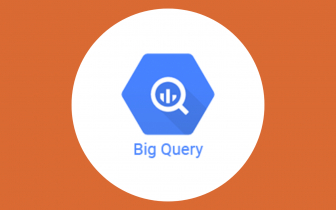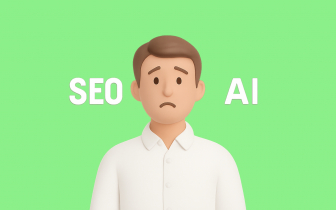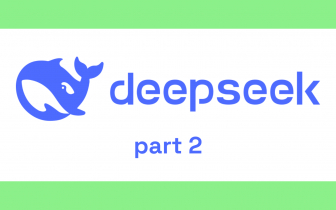21st Century Marketing — AI vs. Human
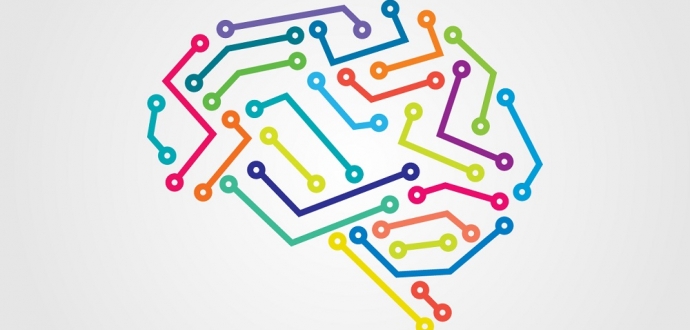
The topic of artificial intelligence is so immense and can be reached through so many different angles, that it’s quite a challenge to simplify it. We’ll do our best to scratch you a picture of marketing’s future with AI, and reveal its potential together with application examples.
Without looking too far into the future, let’s answer the main questions that interest marketers in terms of artificial intelligence.
Can AI be helpful? Or is it a threat to traditional marketing? Will computers substitute us? Do we need to start looking for a new way to make a living?
Continue reading to learn more about the most popular examples of AI use.
Machines in the service
They still have problems with responding correctly to your questions but it’s hard to deny - machines are learning. Google gives you better suggestions when you type your query in the search panel; Facebook and Instagram manage to show ads with products you could swear you were thinking of the other day; chatbots that used to annoy you with their silliness are easily confused with real people.

Step by step we’re moving to the new era - machine-assisted or even machine-driven. It’s only a matter of time before we delegate content creation to our computers. Actually, some companies already have.
The business and financial sectors are the first ones to try out machines’ intelligence and make use of the content produced by AI. The content of those fields is the dream for machines to work with (if machines can dream, of course). It needs to be structured, and informative, with no excessive sentences, opinions, or emotions. And this is just what computers create!
Surely, human assistance is still inevitable, especially at the preparation stage. People need to make up a template that computers could read and interpret, and accurately fill that template with the necessary data.
Producing empathetic, emotional, and creative content is still the writers’ job. At least for now. As more and more efforts and investments are spent to change that.
In search of natural language
Content continues to be one of the main worries for marketers in 2024.
- 47% of B2B marketers related their decrease in success to content creation challenges.
- At the same time, 85% said content contributed to the company’s overall success.
Quality content creation and the urge for more content speed up the research of content automation. Natural language processing (NLP) and natural language generation (NLG) are the first steps on that ladder.
How much time do you spend reading, editing, proofreading, and improving your content? What if there was a way to spend that time doing more cost-efficient tasks? You could, of course, hire an editor but soon there will be more options than that.
Not long ago Grammarly, a tool to check your texts for mistakes online, got $110M in funding. What does it do? Company’s algorithms teach computers to actually “read” the text you’re giving to them, and provide you with suggestions for its further improvement. The system considers not only possible typos but analyses grammar and suggests stylistic changes.
What’s next? NLG, or natural language generation, is actually aimed at creating content. We’re not talking about a Catcher-In-The-Rye-type of text, definitely not. Instead, we are talking about a pile of data about, say, a company’s budget and making it a concise text - this is getting quite possible. Once again, we don't discuss some data written on a napkin, no. It's more about a highly-structured template or a grid of information, which even the “narrowly thinking” computer brain can understand. Well, “read,” using NLP for that matter.
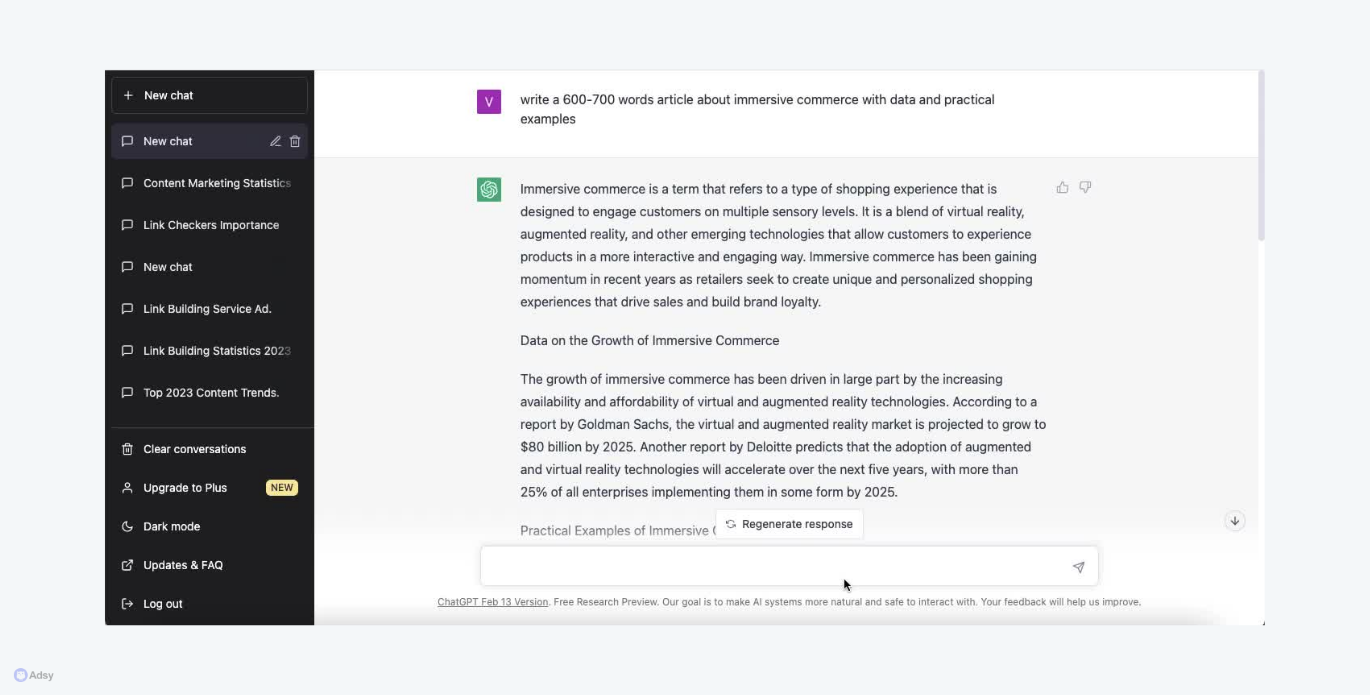
As you can see, there’s no talk about the full replacement of human force, if you are worried about that. What we should expect is more sort of collaboration between people and AI, which will give the former freedom to do something more creative and require the work of the right brain.
These are only a few examples but you can see the trend - computers are becoming our allies in both analyzing and creating content.
The bigger picture
But it’s not only about content. Yes, for content marketers this is the critical question but let’s look at the bigger picture - marketing as a whole. What AI will allow us to do will entirely change the way marketing works.
Research
The most evident supposition is that machines will perform the research. They have access to the depths of the Internet, and their memory is only restricted by terabytes (is it, however?). What humans need to do is create algorithms that will teach computers to pick up all the necessary information and structure it for further reference. What’s more, all the data about customers can be within a few clicks’ reach.
For instance, ChatGPT can perform a wide range of actions. And giving outlines or headlines suggestions for articles fall under the list as well.
Targeting (r)evolution
Machine learning will make micro-targeting possible, at the same time, giving brands the power to reach out to each and every person in their target audience. Such variables as sex, age, and nationality will be analyzed to get the best outcome and produce the kind of message the user needs to see. New channels can be used to communicate those messages depending on every data about users.
For instance, 88% of marketing professionals claimed that AI helped them personalize the customer journey across channels.
Foreseeing
Taking into consideration all the data computers will have access to and their analytic abilities, we can expect them to make the most accurate predictions. Content performance, marketing, and advertising campaign outcomes can be seen before you even launch them. And, surely, machines will give you an exhaustive list of improvements you need to make to achieve the result you hope for. Soon, instead of taking action and tracking its results, we’ll be able to anticipate them and adjust efforts if necessary.
As a matter of fact, 60% of marketers employed AI wishing to predict customer behavior and needs.
Challenges and fears
Despite the doors that AI opens to marketers, there’s a concern regarding its application. Elon Musk, Tesla CEO, advocates that the use of artificial intelligence should be regulated, as computers are a real threat to human civilization.
Very few marketers see eye to eye with him on the matter and have a much more positive opinion. John Marshall, from Lippincott, believes that AI gives brands an opportunity to get to know their customers, together with an ability to make wise marketing decisions. “In the future, brands not knowing their customer will be unacceptable and nearly impossible,” he argues.
Conclusion
For now, it’s impossible to predict the real impact of artificial intelligence on humans’ everyday life. What we can expect, however, is a real shift in marketing. The shift toward more conscious judgments, reasonable choices, and quality marketing in general.
If you liked this article use the social media buttons on your left and share it with your friends. We’ll also be really happy to read your comments on the topic.
All trademarks, logos, images, and materials are the property of their respective rights holders.
They are used solely for informational, analytical, and review purposes in accordance with applicable copyright law.





